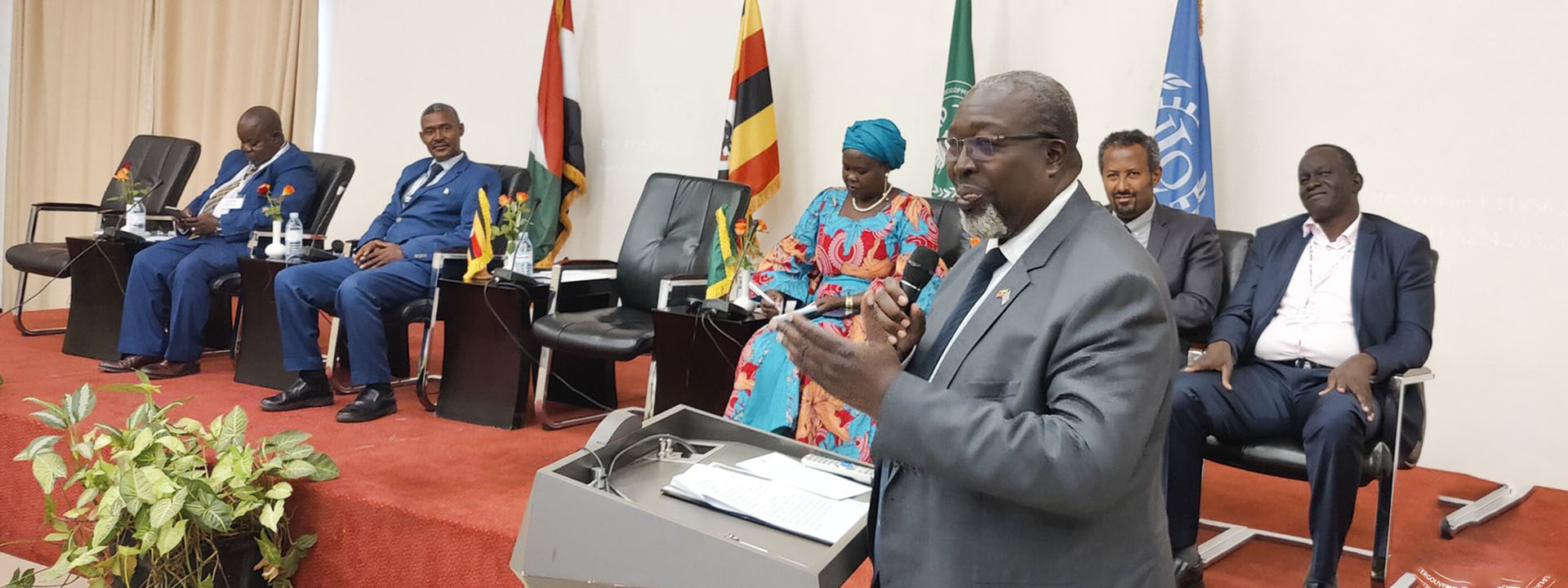August 22, 2022 (ENTEBBE, Uganda): The Minister of State for Labour of Uganda, Hon. (Rtd) Colonel Okello Engola, inaugurated a Regional Training on Protection of Migrant Workers convened by the Intergovernmental Authority on Development (IGAD) in collaboration with the International Training Centre of the International Organisation for Labour (ITCILO) in Entebbe.
This five-day regional training is the first of a series three in-person training sessions to complete a course that also comprises on-line sessions. The two remaining in-person training sessions will be held within the next couple of months and will respectively focus on Labour Migration Governance, and Migration and Development.
Participants to this five-day training include officials and experts from Ministries of Foreign Affairs, of Labour, of Gender, and of Internal Affairs from IGAD member countries, as well as delegates from the Horn of Africa Confederation of Trade Unions (HACTU) and the Confederation of IGAD Employers (CIE).
This blended course offers a comprehensive and accessible overview of international labour standards protecting migrant workers and the ILO’s efforts to protect migrant workers through a rights-based approach.
This training session is divided into four blocks focusing on the following core elements:
- Review of migration today in the IGAD context and experience
- The normative framework for protection and decent work for migrant workers: human rights instruments, international labour standards, and AU and IGAD instruments
- Prospects, challenges and dilemmas for improving protection of migrant workers and family members in and from IGAD member countries
- Developing shared analysis, cooperation and plans of action
Upon completion of the entire course, participants will have:
- Enhanced their knowledge of international labour and regional standards protecting migrant workers and the ILO supervisory mechanism;
- Deepened their understanding of the necessary institutional mechanisms, policy frameworks, and coordination instruments for equal access to migrants’ rights;
- Analysed the multiple discrimination migrants face in vulnerable situations, particular irregular migrants;
- Become familiar with the different responses to these vulnerabilities and needs at different stages of the migration process: pre-departure, in transit, during residence and on return;
- Discussed the gap between the rights migrants hold by virtue of law, and their practical implementation;
- Enriched understanding of solutions and policy measures to ensure access to justice for migrant workers.
Labour migration can provide a safety valve to reduce the pressures on national labour markets in the African region. To harness this employment creation potential through a regular migration system at the regional level, the seven countries making up the IGAD group in Eastern Africa (Djibouti, Ethiopia, Kenya, Somalia, Sudan, South Sudan and Uganda) have made commitments to improve migration governance through the development of appropriate legal and policy frameworks including establishment of a regional free movement regime with financial support from the European Union.

